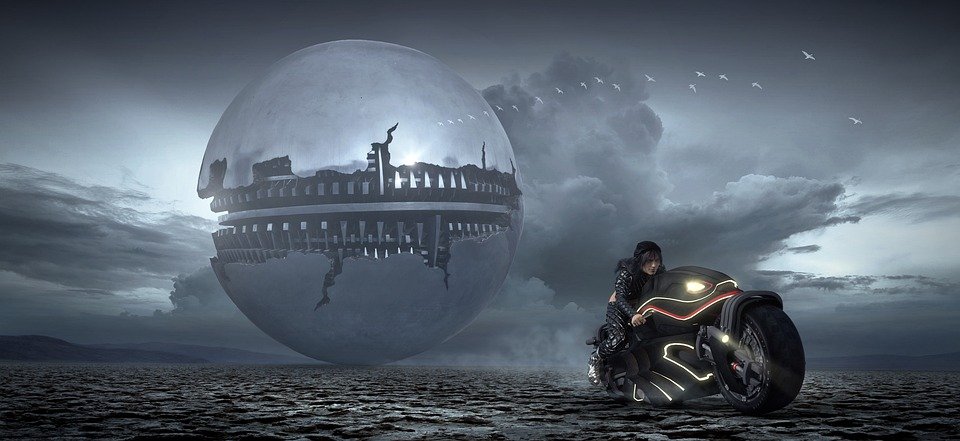Time Travel and Causality: Navigating the Complexities of Cause and Effect
Introduction
Time travel has been a fascinating concept in science fiction for decades, capturing the imagination of many people. The idea of being able to travel through time and alter events has intrigued and puzzled both scientists and philosophers. One of the most intriguing aspects of time travel is the question of how it impacts causality and the concept of cause and effect. In this article, we will explore the complexities of causality in the context of time travel.
Understanding Causality
Causality is the relationship between cause and effect, where a cause is an event or action that brings about a particular effect. In everyday life, we observe causality all around us. For example, if we drop a glass, it shatters on the ground because the force of gravity causes it to fall and break. Causality is deeply ingrained in our understanding of the world and forms the basis of scientific inquiry.
However, when time travel enters the picture, causality becomes much more complex. Time travel introduces the possibility of altering events that have already happened or interacting with events in the past or future. This raises questions about whether causality is a fixed and unchangeable concept or if it can be influenced or even completely rewritten through time travel.
The Grandfather Paradox
The Grandfather Paradox is one of the most famous thought experiments regarding time travel and causality. It involves a hypothetical scenario where a person travels back in time and kills their own grandfather before their parent is conceived. This raises a paradoxical question: if the person’s grandfather is killed before their parent is born, then how could the time traveler have ever been born to travel back in time and kill their grandfather?
This paradox highlights the potential contradictions and logical inconsistencies that arise when we consider the implications of changing the past through time travel. It challenges the concept of causality as a linear chain of events and raises questions about the nature of time itself.
Multiple Timelines and Parallel Universes
To address the paradoxes and complexities of causality in time travel, some theories propose the existence of multiple timelines or parallel universes. According to these theories, when a time traveler alters the past, they do not actually change their own timeline but create a new one. This means that the original timeline where the events unfolded as they did remains intact, while a new timeline branches off with the altered events.
Under this framework, causality remains consistent within each timeline, avoiding the logical contradictions of the Grandfather Paradox. However, it also raises questions about the relationship between these multiple timelines and the potential for interactions or overlaps between them.
Temporal Loops and Predestination
Another concept that arises in the context of time travel and causality is the idea of temporal loops and predestination. A temporal loop occurs when an event is influenced by its own future outcome. For example, a time traveler may go back in time and give their past self a crucial piece of information that allows them to achieve a specific outcome in the future.
This concept challenges the linear nature of causality and suggests that future events can have a causal influence on past events. It raises questions about free will and determinism, as it suggests that events are predetermined and that any attempts to change the past are ultimately futile.
FAQs
Q: Is time travel possible?
A: While time travel remains a topic of scientific speculation and fiction, there is currently no scientific evidence to support its existence. However, the concept of time travel continues to be explored and studied within the realms of theoretical physics.
Q: Can time travel alter the course of history?
A: The implications of time travel on history are highly debated. Some theories suggest that altering the past could create multiple timelines or parallel universes, while others argue that the past is predetermined and any attempts to change it would be futile. As of now, these ideas remain theoretical and speculative.
Q: What are the ethical implications of time travel?
A: The ethical implications of time travel are vast and complex. The ability to alter events in the past could have significant consequences for the present and future. It raises questions about the morality of changing history, potential ripple effects, and the responsibility of time travelers to consider the broader implications of their actions.
Q: Can time travel enable us to prevent disasters or change the course of human history?
A: The idea of using time travel to prevent disasters or alter the course of history is a common theme in science fiction. However, the practicality and feasibility of such endeavors remain purely speculative. It is important to separate the scientific exploration of time travel from its fictional portrayals.
Conclusion
Time travel presents a fascinating and complex interplay between causality and the concept of cause and effect. The Grandfather Paradox, multiple timelines, temporal loops, and predestination all challenge our understanding of causality and raise profound questions about the nature of time itself. While time travel remains speculative and theoretical, exploring these complexities helps us appreciate the intricacies of cause and effect in our everyday lives and the potential implications of altering the past.

